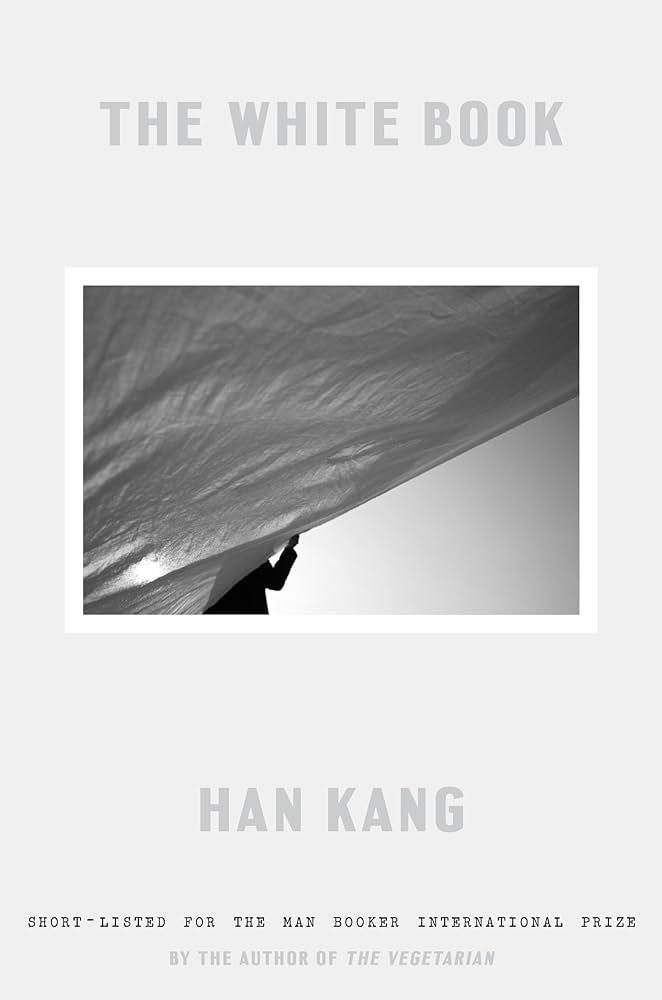The White Book, by Han Kang, translated from the Korean by Deborah Smith
"the only comfort lay in the impossibility of forever"
It was easy — and lazy — at first, for me to compare this book to Bluets by Maggie Nelson, a book I read years ago, a book I loved. Both that book and this book are meditations on color and grief, both are told in short, poetic, beautiful snippets of clean, sparse prose. Both are wonderful, sad, fantastic books that expound upon the idea that life is, inherently and unequivocally, fragile.
But that’s more or less where the similarities end.
The White Book — written by this year’s Nobel Prize winner, Korean writer Han Kang — explores, naturally, the color of white, which is of course an absence of color, and that then is the theme of the book: an absence, and what it means to grieve an absence of something that never was, in this case an older sister who died when she was but two hours old, years before the writer was born. We follow the writer as she grieves while wandering the street of Warsaw, where she is staying as a writer-in-residence.
*
We all know grief, or have known grief. That is not up for debate. (Though some have a deeper understanding of it than others; that is not up for debate either.) And we all, like the writer, have grieved for something that simply never was, rather than something that was and now is not. It’s a particular kind of grief, one that can be hard to hold onto, one that easily slips through our fingers, which is what Han Kang is struggling with as she writes. I thought about all the absences that I have grieved, that I continue to grieve, as I read, which I think is what the writer wanted us to do, to explore our own grief as she explored hers. That’s the power of great books.
But Han Kang took it one step further, past the grief, to the idea that if the loss — or the absence — never existed, then our day to day life probably doesn’t exist as we know it. Or, in the writer’s case, she doesn’t exist at all, as her parents probably would not have had more children if they hadn’t lost her older sister. Trying to find a foothold on that idea is not just tricky, but occasionally impossible. Which is, again, probably why the writer started writing about absence, about a lack of color, about what it means to see the color white in the natural world, and how that can help us find an understanding of our own losses, and how they have shaped us.
Near the end of the book, I started to think about my son, and how many parts of my life could have easily broken a different way, negating his existence altogether. The thought of a world without him horrifies me, but it doesn’t cleanse the regrets completely, it doesn’t make the losses I’ve suffered any less painful.
“My life means yours is impossible,” the author writes in the heartbreaking final section of the book. What a thought. What an idea. How to grab onto that? Where to find a place within that thought where one can be okay? Han Kang’s answer is to see the beauty in the whiteness of waves cresting, clouds moving across a black sky, the stillness of a white birch forest, to see it all with her sister’s eyes as well as her own. The lesson in that is universal: without white, we see no colors at all.
What a magnificent book. What a gifted writer. We are lucky to have her.
*
Next up: another hard left turn: City of Bohane, by Kevin Barry.
Thanks for reading.



